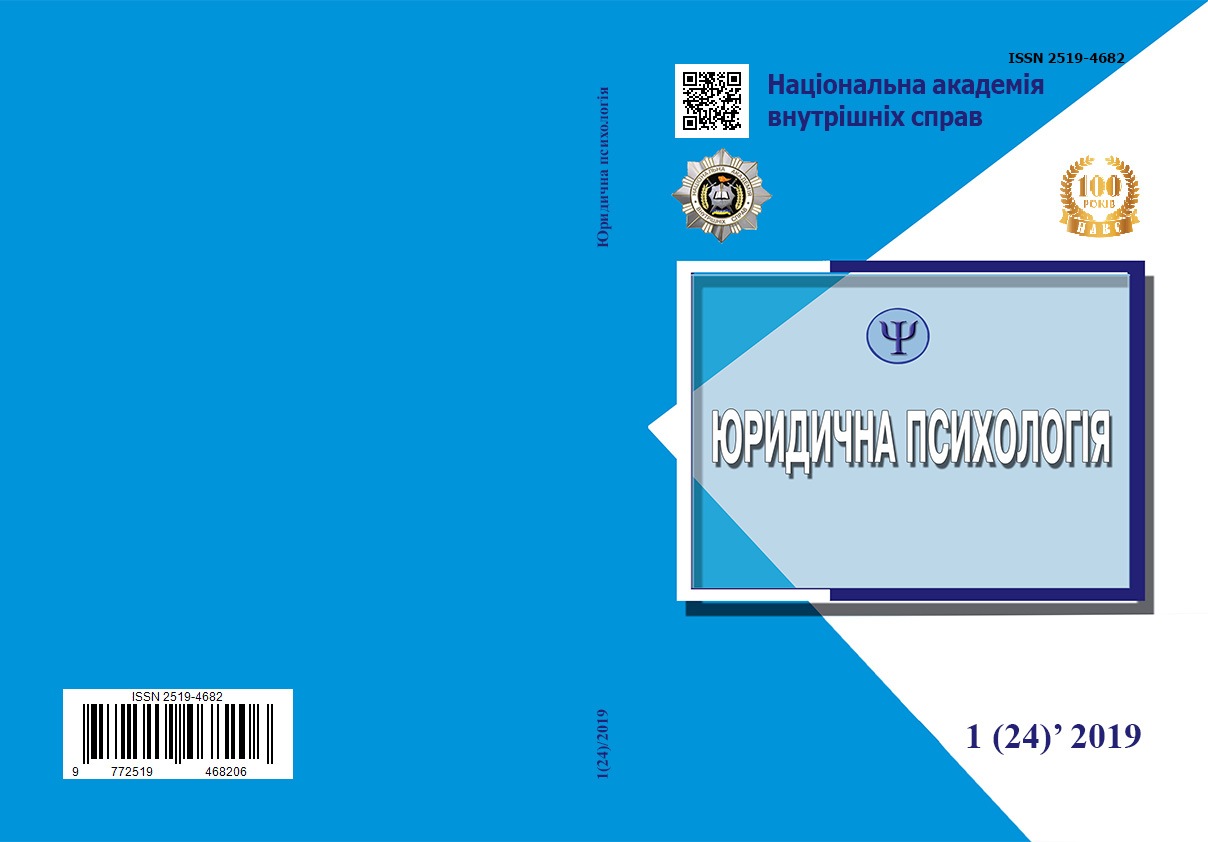Psychological Characteristics of Legally Relevant Emotional States
Abstract
The purpose of this article is to develop one of the most burning problems of psychology in general and legal psychology in particular – problems of psychological characteristics of the personality’s emotional states that are legally relevant. Methodology. A theoretical analysis of scientific sources on the specified topic is the leading research method. Scientific novelty. It is stated in the article that the personality’s emotional states have the largest value within carrying out forensic analyses. Basic approaches to classify legally relevant emotional states are determined based on the theoretical analysis. It is established that such emotional states as affect, stress, post-traumatic stress and frustration are of the largest value for the legal psychology. The notions of a biological and a psychological stress are differentiated during the analysis of the stress state. A theoretical analysis of the post-traumatic stress disorder that is legally relevant is introduced. The factors complicating the dynamics of the post-traumatic stress disorder and the criteria of its diagnostics are specified on the basis of the leading investigators’ works. The notion of the affective state is analysed.
A comparative differentiation of a preparatory stage, an explosion stage and a final stage of the physiological, cumulative, pathological and abnormal affect (the affect in a state of alcoholic and narcotic intoxication) is performed. The frustration state is analysed. It is determined that the frustration is closely related to aggression and may cause behavioural disorders. According to the works of leading scientists the basic variants of the personality’s behaviour in the state of frustration are specified. Conclusions. It is proved that the affective state is the most investigated legally relevant emotional state, herewith other legally relevant emotional states, in particular crisis states, conflict states or addiction were less investigated by scientists in the context of the legal psychology, that makes a prospect for
further investigations.
Keywords: emotional state; stress; post-traumatic stress; affect; frustration; forensic analysis.
Downloads
Abstract views: 273 PDF Downloads: 637
- Authors reserve the right to authorship of their own work and transfer to the magazine the right of the first publication of this work under the terms of the Creative Commons Attribution License, which allows other persons to freely distribute published work with mandatory reference to authors of the original work and the first publication of an article in this magazine.
- Authors have the right to enter into separate additional agreements on non-exclusive dissemination of the work in the form in which it was published in the journal (for example, to post an article in the institution's repository or to publish as part of a monograph), provided that the link to the first publication of the work in this journal is maintained.
- The journal's policy allows and encourages the posting of articles by authors on the Internet (for example, in electronic storehouses of institutions or on personal websites), both before the submission of this manuscript to the editorial office and during its editorial processing, as this contributes to the creation of a productive scientific discussion and positively affects the efficiency and dynamics of citing the published work.




